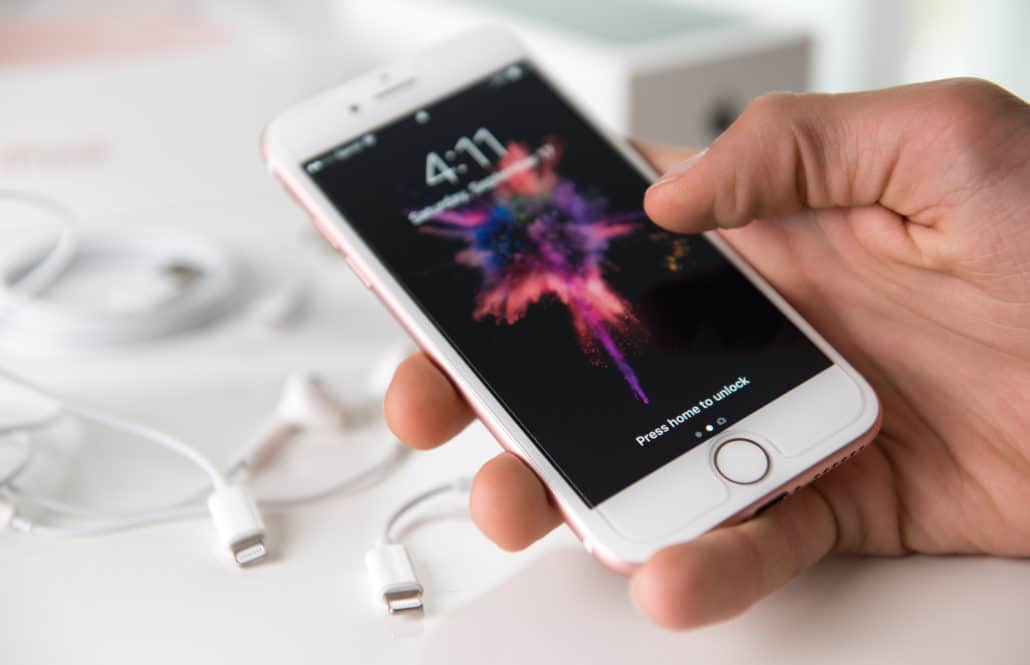So Apple is Slowing Your iPhone
Apple has confirmed that older iPhones are running slower than new ones following the release of a new iOS.
You’ve probably heard the news that Apple iOS updates do, in fact, slow down old iPhones. This confirms a theory that began circling earlier this year as people noticed that with the release of new devices, old ones seemed to be working much more slowly (particularly after an update to the operating system). Apple has provided a fairly straightforward explanation, detailing the deterioration of lithium-ion batteries and how this slowing of the system helps keep the battery life intact, but the question still remains: why would they keep this a secret?

What Got People Talking
When this theory first began making the rounds, the hypothesis was that iPhone was intentionally slowing down older devices following the release of a new device in order to push people to upgrade their phones. This seemed pretty devious, but not at all out of the realm of possibility. At the end of the day, Apple lives and dies by its sales numbers, like any other company, and if they could find a way to manipulate sales, we wouldn’t put it past them to do so. That’s one of the big differences with Apple devices and Android. Unlike Apple, which controls both the device and the software, Android is (in most cases) operating independently of the hardware onto which it’s installed.
With that in mind, the conversation picked up steam over the past few months and the focal point was that Apple was deceiving customers and, ironically, downgrading the performance of older hardware with every software upgrade. Now, having reached a boiling point, Apple has been forced to respond.
What Apple Has Said
On Wednesday, Apple released the following statement:
Our goal is to deliver the best experience for customers, which includes overall performance and prolonging the life of their devices. Lithium-ion batteries become less capable of supplying peak current demands when in cold conditions, have a low battery charge or as they age over time, which can result in the device unexpectedly shutting down to protect its electronic components.
Last year we released a feature for iPhone 6, iPhone 6s and iPhone SE to smooth out the instantaneous peaks only when needed to prevent the device from unexpectedly shutting down during these conditions. We’ve now extended that feature to iPhone 7 with iOS 11.2, and plan to add support for other products in the future.
At its core, this is a fairly simple and understandable explanation. The trials that exist with lithium-ion batteries are no secret. Battery life is also something that consumers have noted as an issue in the past, so it would make sense that slowing the performance of hardware that is not built to run more advanced software would help with battery issues. But the issue here is not with Apple’s justification, it is with how they have handled this situation.
Too Late to Apologize?
Call it vanity, call it hubris, call it whatever you want, but Apple has shown time and time again that it is loathe to admit failure. Silicon Valley has largely adapted the concept of ‘Fail Fast, Fail Often’ or, in the case of Facebook until a few years ago, ‘Move Fast and Break Things’, but Steve Jobs was a notorious perfectionist. Apple’s culture (and Board, I presume) would not allow a representative to stand on the world’s stage and talk about software updates hindering the performance of old devices.
It also would not sit particularly well with iPhone owners to hear that the jokes that are often made about a phone being worthless within minutes of its purchase as upgrades are already being released to be completely true. In other words, Apple likely didn’t want to hop on stage at one of their conferences and say: “You have no choice but to buy this new phone for $1,000 even though yours is working fine, because soon it won’t.”
So instead of sharing with the world this bit of (fairly pertinent) information, Apple kept it quiet. Now, in the modern age of information sharing, there really isn’t much worse for a brand’s image than when consumers uncover the truth and expose an issue a brand has been trying to hide. That makes it virtually impossible for anything the brand says after the fact to be taken well. It falls very much into the category of ‘You’re Only Sorry Because You Got Caught’, which is nothing to be proud of. There is also the issue that Apple’s explanation, while believable, is going up against the widely believed theory that this is a sales tactic used to push iPhone owners to buy a new device as the old phones function at a fraction of the speed. That’s a hard opinion to shake, particularly when consumer trust in brands has been on a steady decline in the new age of information.
Will this hurt Apple? Probably not. Apple’s has built a strong enough base of loyalists and a good enough product that there is little they can do to ruin their brand value. Will this teach them a lesson? One hopes, but again, admissions like this aren’t decided by a virtuous employee, they are decided by a series of stakeholders and analysts running meticulously designed cost-benefit analyses.
Long story short: expect nothing to change.



